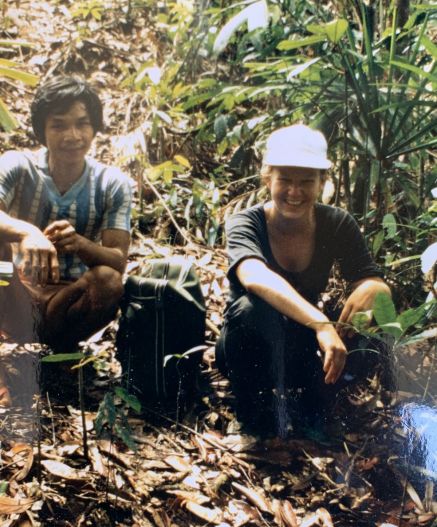Grounding Area Studies: Development Sociology in Southeast Asia

Development Sociology and the Study of Agrarian-Environmental Change in Southeast Asia, by Hilary Faxon, Nancy Peluso, and Peter Vandergeest
Students in development sociology (DSOC) view their approach to studying rural, agrarian, and environmental change as distinct; always starting on the ground or “in the field.” This approach evolved over the years in the department and clearly applied to DSOC students working in Southeast Asia after SEAP’s formation in 1950.
Most students arrive at Cornell for graduate studies having spent time in one or more countries of Southeast Asia. Some have been involved in development work through organizations like the Peace Corps or the Canadian volunteer organization Cuso International. Others choose Cornell because of the university’s strong reputation for research and political engagement in Southeast Asia as well as its broader profile in the region for research in history, politics, and anthropology.
Our intention in this article is to provide a sense of the ideas guiding Southeast Asia-based research of Cornell students and faculty in the Department of Rural Sociology, now the Department of Development Sociology. Further, we offer a few reflections on this community of practice and how it has changed over time.
SEAP’s founding in 1950 provided opportunities to deepen and extend work on rural transformation and development with attention to environments, communities, and agrarian change in Southeast Asia. Applied and theoretical research on these topics already had a long history at Cornell. READ MORE
